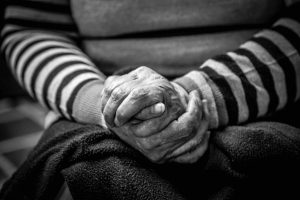A University of Chicago study reveals that approximately 13 percent of elderly Americans experience some sort of mistreatment. The most common form of abuse was verbal, experienced by 9 percent of elderly Americans, then financial mistreatment, experienced by 3.5 percent, and then physical abuse, reported by .2 percent of the elderly.
“The population of the country is aging, and people now live with chronic diseases longer. So it’s important to understand, from a health perspective, how people are being treated as they age,” said lead author Edward Laumann, the George Herbert Mead Distinguished Service Professor in Sociology at the University of Chicago.
The study revealed variations in the abuse, depending on age and ethnicity, and females were twice as likely to report verbal mistreatment.
 California Nursing Home Abuse Lawyer Blog
California Nursing Home Abuse Lawyer Blog


 Being a nurse herself and believing there were available beds, the daughter called the same facility the following day to see if there was room for her mother. Using a different name, she again asked if there were available beds, and this time, after informing the nursing home her mother received Medicare, she was told there were several rooms available, and that the facility would be happy to provide a tour that afternoon.
Being a nurse herself and believing there were available beds, the daughter called the same facility the following day to see if there was room for her mother. Using a different name, she again asked if there were available beds, and this time, after informing the nursing home her mother received Medicare, she was told there were several rooms available, and that the facility would be happy to provide a tour that afternoon.






